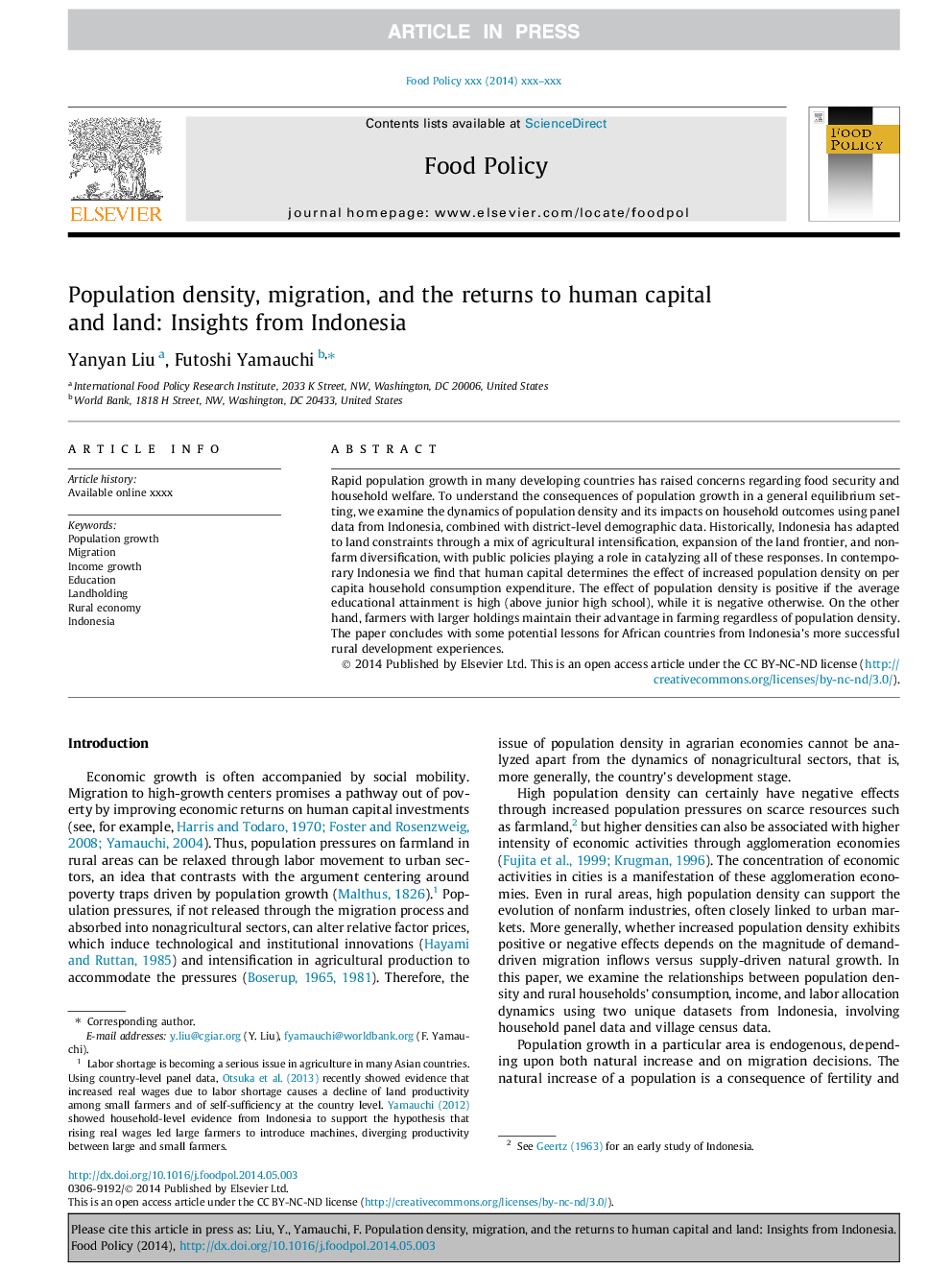| Article ID | Journal | Published Year | Pages | File Type |
|---|---|---|---|---|
| 5070545 | Food Policy | 2014 | 12 Pages |
Abstract
Rapid population growth in many developing countries has raised concerns regarding food security and household welfare. To understand the consequences of population growth in a general equilibrium setting, we examine the dynamics of population density and its impacts on household outcomes using panel data from Indonesia, combined with district-level demographic data. Historically, Indonesia has adapted to land constraints through a mix of agricultural intensification, expansion of the land frontier, and non-farm diversification, with public policies playing a role in catalyzing all of these responses. In contemporary Indonesia we find that human capital determines the effect of increased population density on per capita household consumption expenditure. The effect of population density is positive if the average educational attainment is high (above junior high school), while it is negative otherwise. On the other hand, farmers with larger holdings maintain their advantage in farming regardless of population density. The paper concludes with some potential lessons for African countries from Indonesia's more successful rural development experiences.
Related Topics
Life Sciences
Agricultural and Biological Sciences
Food Science
Authors
Yanyan Liu, Futoshi Yamauchi,
